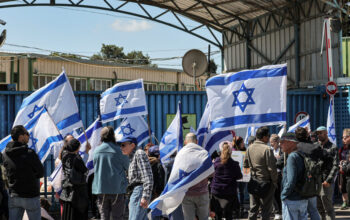
Violent protests have spread across France over the past week since the fatal police shooting of a 17-year-old in a Paris suburb.
More than 800 people were arrested on Thursday night after protesters caused widespread destruction in dozens of cities, setting cars and buildings on fire, looting stores and clashing with the riot police. On Friday, many roads in the Paris region and other major cities like Marseille were cordoned off, and public transport routes were disrupted as more than 40,000 police officers were deployed across the country to bring the protests under control.
With the peak summer travel season underway, many tourists are headed to Paris and other parts of France for their summer vacations. Here’s what you need to know about how your trip might be affected.
Which cities have been hit hardest?
The clashes began in the Paris suburb of Nanterre on Tuesday night, after the police shot and killed the male teenage driver — a French citizen of North African descent, publicly identified as Nahel M. — who was stopped at a traffic light. The violence quickly spread to nearby areas in the greater Paris region as news of the killing reignited decades-long grievances over racial discrimination in working-class areas. The police officer who shot the driver was detained on Thursday on charges of voluntary homicide.
After three nights of riots, Clamart, in the southwestern suburbs of Paris, imposed a curfew between 9 p.m. and 6 a.m. through Monday. Other communities affected by the violence include Bezons, Gennevilliers, Garges-lès-Gonesse, Meudon and L’Île-St.-Denis, close to the headquarters of the 2024 Olympics.
The center of Paris, home to tourist attractions like the Louvre and the Eiffel Tower, had largely been unaffected until Thursday night, when looters descended onto the Rue de Rivoli, one of the city’s main shopping streets, and ransacked a Nike store.
Police asked people in popular tourist areas in Marseille and Bordeaux to leave the area on Thursday night after fires were set alongside streets, and violent clashes erupted between the police and protesters. On Friday, Marseille banned all demonstrations.
How has transport been affected?
On Friday, the Interior Ministry ordered the suspension of all bus and tram services after sunset, in response to the unrest.
The greater Paris region had already reduced services in recent days to limit the mobility of the protesters at night, and the city’s metro system will close an hour early over the weekend. Île-de-France Mobilités, the regional transport agency, has been issuing service updates on its website.
Is it safe to visit France?
The State Department has not advised against travel to France, but it issued a security alert on Thursday highlighting the violence and urging United States citizens to avoid “mass gatherings and areas of significant police activity.”
“Some cities are imposing curfews,” the alert said. “As always, it is a good practice to notify friends or family of your whereabouts.”
A State Department advisory issued in 2022 remains in place, urging travelers to “exercise increased caution in France due to terrorism and civil unrest.”
Follow New York Times Travel on Instagram and sign up for our weekly Travel Dispatch newsletter to get expert tips on traveling smarter and inspiration for your next vacation. Dreaming up a future getaway or just armchair traveling? Check out our 52 Places to Go in 2023.


